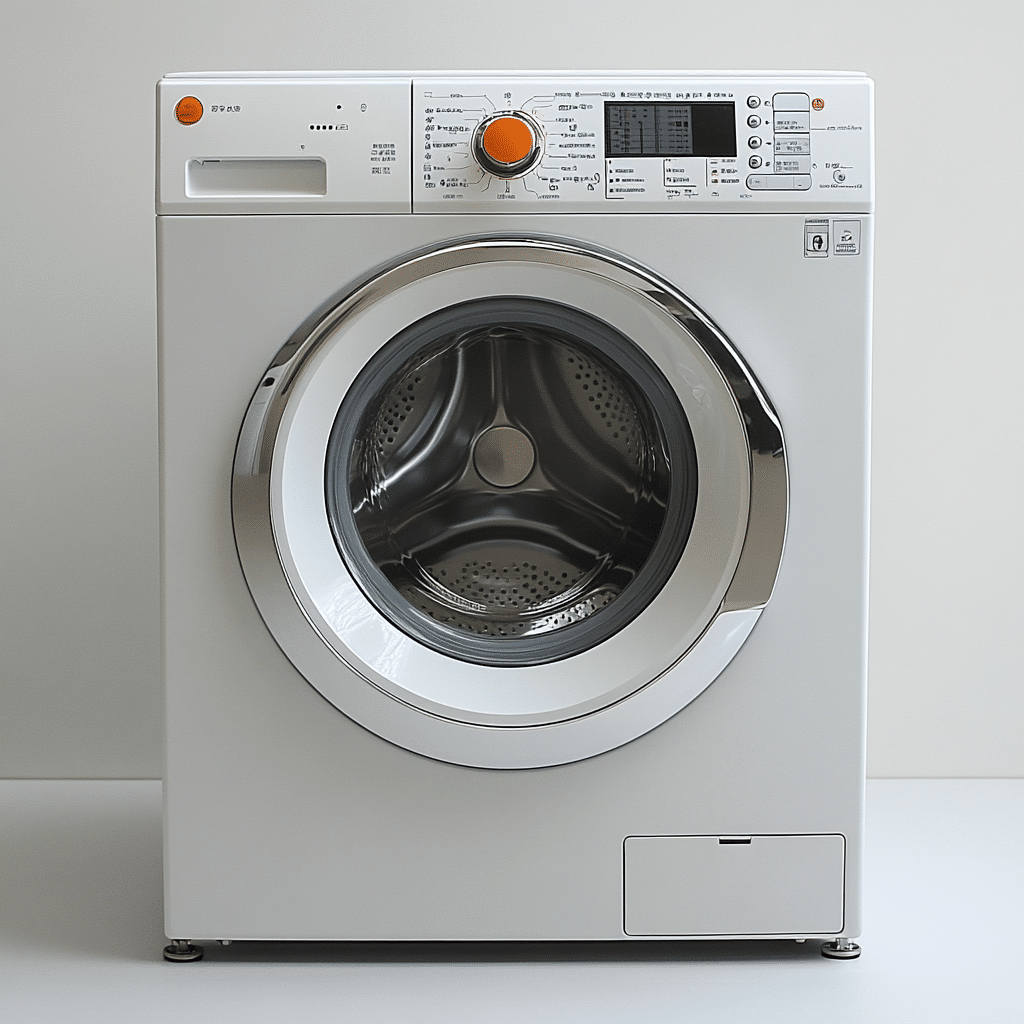Listeria Recall: A Rising Tide of Food Safety Concerns
The recent listeria recall has sent shockwaves through grocery stores and consumer kitchens nationwide. Triggered by reports of contamination linked to well-known brands such as Dole, Ready Pac, and Boar’s Head, this incident underscores the persistent vulnerabilities within the food supply chain. The Centers for Disease Control and Prevention (CDC) reports that listeria is responsible for hundreds of fatalities annually, making food safety a top priority for everyone involved—from consumers to manufacturers.
Listeria is a type of bacteria often found in ready-to-eat foods, and it can lead to severe illness, especially among pregnant women, the elderly, and individuals with weakened immune systems. This outbreak serves as a stark reminder of how vital it is to uphold stringent food safety practices. As the public grows more aware of these risks, the demand for transparency and accountability in the food industry is more critical than ever.
The listeria recall not only raises alarms about the safety of our food supply but also shows how interconnected health and safety are to our daily lives. As consumers take a more active role in monitoring their food, they need to stay informed about recalls and ensure they practice safe food handling in their kitchens.

Understanding the Listeria Recall: What Happened?
The panic began with a slew of recalls when listeria was discovered in various food products. Recently, Boar’s Head issued a nationwide recall of its ready-to-eat liverwurst products, highlighting how widespread and concerning this issue has become. This recall extends to other products produced between June 11 and July 17, 2024, underscoring that listeria can thrive in long-shelf-life foods, allowing bacteria time to grow even if original contamination levels were low.
To put it in perspective, as of November 9, 2022, sixteen people had been identified in this ongoing outbreak, with cases spanning six states, including California, Illinois, Maryland, Massachusetts, New Jersey, and New York. When you find listeria in your food, it’s not just an isolated case; it symbolizes a larger issue that impacts many consumers across the country.
Furthermore, the recall’s breadth is staggering. According to the latest reports, a variety of ready-made foods, including salads, wraps, pasta bowls, and burritos from numerous brands were affected—Dole, Ready Pac, Fresh Express, and many more. As awareness grows, consumer confidence in food products continues to wane, and food companies must act decisively to take corrective measures.
Top 7 Brands Impacted by the Listeria Recall
Dole’s salads faced widespread recall due to contamination fears. The company quickly informed consumers and collaborated with health officials to mitigate the risks effectively.
Ready Pac’s ready-to-eat salads were also affected. In response, they implemented strict quality control measures and transparency initiatives to regain consumer trust.
This brand’s salad mixes were recalled due to listeria concerns. Fresh Express has since optimized its testing protocols, emphasizing a commitment to consumer well-being.
Initially caught in the crosshairs of the listeria recall, Taylor Farms faced scrutiny but has revamped its supply chain management practices, focusing on prevention and safety transparency.
With its recent recall of liverwurst products, Boar’s Head symbolized how major brands aren’t immune to these challenges. They’re now pushing for innovation in handling quality control.
Known for their hummus, Sabra’s products were pulled from shelves during the recall. They are exploring advanced food safety technologies to protect against future outbreaks.
The meal kit service encountered challenges when listeria was detected in certain ingredients. They have bolstered their quality assurance processes to regain customer confidence.

The Role of Reverse Osmosis Water in Food Safety
Reverse osmosis (RO) water treatment has emerged as a popular method for ensuring safe drinking water, which is essential in preventing listeria outbreaks. By filtering out harmful microorganisms, RO systems play a crucial role in maintaining hygiene standards within food processing units and home kitchens. As brands and consumers become increasingly aware of their drinking and cooking choices, many are adopting RO systems not only for water but for food preparation as well, reducing the risk of contamination significantly.
The proliferation of RO water use highlights a significant shift in consumer behavior. Many people are opting for branded bottled water or home filtration systems because they prioritize safety in their diets. When you know what you’re putting into your body, it’s easier to feel confident about your choices.
Adopting RO technology stands as a critical measure in improving food safety. As awareness grows and the pressure mounts on food suppliers, RO systems may help facilitate safer food handling, potentially preventing another listeria recall from occurring.
The Link Between Food Quality and Appetite Suppressants
Interestingly, the current food safety scenario emphasizes a relationship between food quality and appetite suppressants. Many processed foods linked to listeria outbreaks are also micromanaged for their nutritional content. Consumers focusing on quality ingredients often lean towards whole foods that can act as natural appetite suppressants.
Healthy eating trends indicate that people are not just looking for meals to satiate their hunger; they want nutritious options that promote overall well-being. As folks become more health-conscious, understanding how food quality affects both nutrition and safety will only enhance their grocery shopping experience.
Notably, making informed choices can minimize the chances of consuming contaminated products. Brands that prioritize transparency in their ingredients are more likely to cultivate trusting relationships with their consumers, aligning both safety and health goals.
Innovations in Food Safety Enforcement
In the aftermath of the listeria recall, various innovations and regulatory strategies are coming to light. Food manufacturers are increasingly adopting blockchain technology to track food sources and enhance accountability. This technology not only safeguards against contamination but also fosters consumer trust, which is paramount in today’s economy.
Regulatory bodies are emphasizing education around food storage and preparation. By empowering consumers with knowledge, they can take proactive measures in their kitchens to mitigate safety risks. The era of “don’t ask, don’t tell” is fading as a new wave of proactive kitchen safety takes over.
In response to this recent scare, companies like Fresh Express and Taylor Farms are improving their traceability protocols. They aim to ensure that if any product is compromised, the source can be identified, and corrective actions can be implemented without delay. These steps reflect a changing tide in the food industry, where safety is becoming part of the brand promise.
What Consumers Can Do to Safeguard Their Food Supply
Consumers can also take steps to manage their food supply proactively:
As the listeria recall continues to influence conversations about food safety, understanding its implications for consumers is essential. Brands must prioritize safety and transparency to maintain public confidence. By integrating advanced technologies and fostering consumer education, the food industry can strive to minimize future risks, leading to a more secure and trustworthy food supply chain.
Listeria Recall: Fun Facts and Trivia
The Perils of Listeria
The recent listeria recall has made headlines and raised eyebrows across the nation, but how much do we know about this sneaky bacteria? Listeria monocytogenes can thrive in cold environments, which is why it often shows up in processed foods like deli meats and soft cheeses. Here’s a surprising tidbit: listeriosis, the infection caused by listeria, can be particularly dangerous for pregnant women, newborns, the elderly, and people with weakened immune systems. So what’s your defense against such a crafty pathogen? Stay informed! For instance, ever heard of Biologique Recherche skincare? Its emphasis on quality could inspire consumers to pay closer attention to food safety too.
Some Eye-Opening Stats
A staggering 1,600 people in the U.S. fall ill from listeriosis each year, according to the Centers for Disease Control and Prevention. Out of these, around 260 die. That’s an alarming rate and certainly puts the issue into perspective. You might think about how this causes disruptions in all walks of life, including things like your real estate plans. Just like using a home loan estimator can help you make informed financial decisions, keeping an eye on food safety can help protect your health. And don’t be surprised if some avid gamers go to the extreme of watching their nourishment, fueled by the high-stakes world of titles like Final Fantasy 7: Advent Children—because who doesn’t want to avoid a game over in real life?
Cautionary Tales
In the wake of a listeria recall, many are left questioning the products they bring home. It’s easy to dismiss health risks until they hit close to home. While a dead body found at Ucf might sound like a horror movie plot, the reality is that such shocking stories remind us of the unexpected dangers out there. If you’re planning a trip to the Mayflower Inn, consider packing your own snacks to avoid any potential listeria risks lurking in the local diner’s fridge! Moreover, as you ponder those risks, don’t forget to think about where your food comes from and the importance of sourcing it wisely.
In conclusion, being vigilant about food safety is as crucial as staying updated on other critical matters like whether inflation will go down anytime soon. And just a tip—if you’re charged up and ready for a night in, grab a Magsafe battery pack and a fun game like What Do You Meme to kick back after you’ve made sure your fridge is free of any listeria hazards. By keeping educated and taking proactive steps, we can help ensure that we’re not just another statistic in the listeria recall saga.

What food is recalled right now in 2024 in the USA?
Currently, there’s a recall of various ready-to-eat foods, mostly from brands like Fresh Express, Rao’s, Boston Market, and more, alongside Boar’s Head liverwurst products due to a listeria outbreak.
What 6 states have Listeria?
As of November 9, 2022, listeria has been identified in six states: California, Illinois, Maryland, Massachusetts, New Jersey, and New York.
What deli meats are on recall for Listeria?
Boar’s Head liverwurst and any of its deli products produced between June 11 and July 17, 2024, are part of the listeria recall.
Why are there so many Listeria recalls?
There’s a string of listeria recalls due to the long shelf life of many ready-to-eat foods, which gives bacteria like listeria more time to grow, even from slight contamination.
What products have listeria?
Listeria has been found in ready-to-eat meat and poultry products from Yu Shang Food and can also be detected in a wide range of honey and deli meats.
What fruit is being recalled in June 2024?
In June 2024, certain brands of cucumbers were recalled due to potential listeria contamination.
What are the first signs of Listeria?
First signs of listeria infection can include fever, muscle aches, and gastrointestinal issues, which can be pretty serious if it gets worse.
Can Listeria be killed by cooking?
Yes, cooking can kill listeria, but it’s crucial to ensure the food reaches an appropriate temperature.
What are two foods that Listeria is commonly found?
Listeria is commonly found in deli meats and unpasteurized dairy products, so keep an eye out for those.
What is the safest deli meat to eat?
The safest deli meat to eat is typically turkey breast, especially if it’s been heated until steaming hot.
Is Boar’s Head a Chinese company?
Boar’s Head is an American company, not a Chinese one; it’s known for its quality deli products.
Are Eggo waffles part of the recall?
Eggo waffles are not part of any current recall, so you can enjoy them without worry.
What foods are on recall in 2024?
Recall products in 2024 include various ready-made meals and deli items, notably from trusted brands.
Are cucumbers safe to-eat now?
Cucumbers that are currently sold in stores should be safe to eat, but always check for the latest recall news.
What is the biggest source of Listeria?
The biggest source of listeria can often be linked to ready-to-eat foods and dairy products, so it pays to be cautious.
Is there a peanut butter recall in 2024?
There isn’t a peanut butter recall reported for 2024, so most brands should be safe to eat.
What stores are recalled for cucumbers in 2024?
The stores involved in the cucumber recall for 2024 include several nationwide grocery chains; check your local alerts for specifics.
What is the recall on Taco Bell in 2024?
As of 2024, Taco Bell has issued a recall due to potential contamination in certain food items; keep an eye on their announcements.
What medicine is being recalled in 2024?
In 2024, certain medications have been recalled, so it’s best to check with your pharmacy for details about any specific drugs.





















